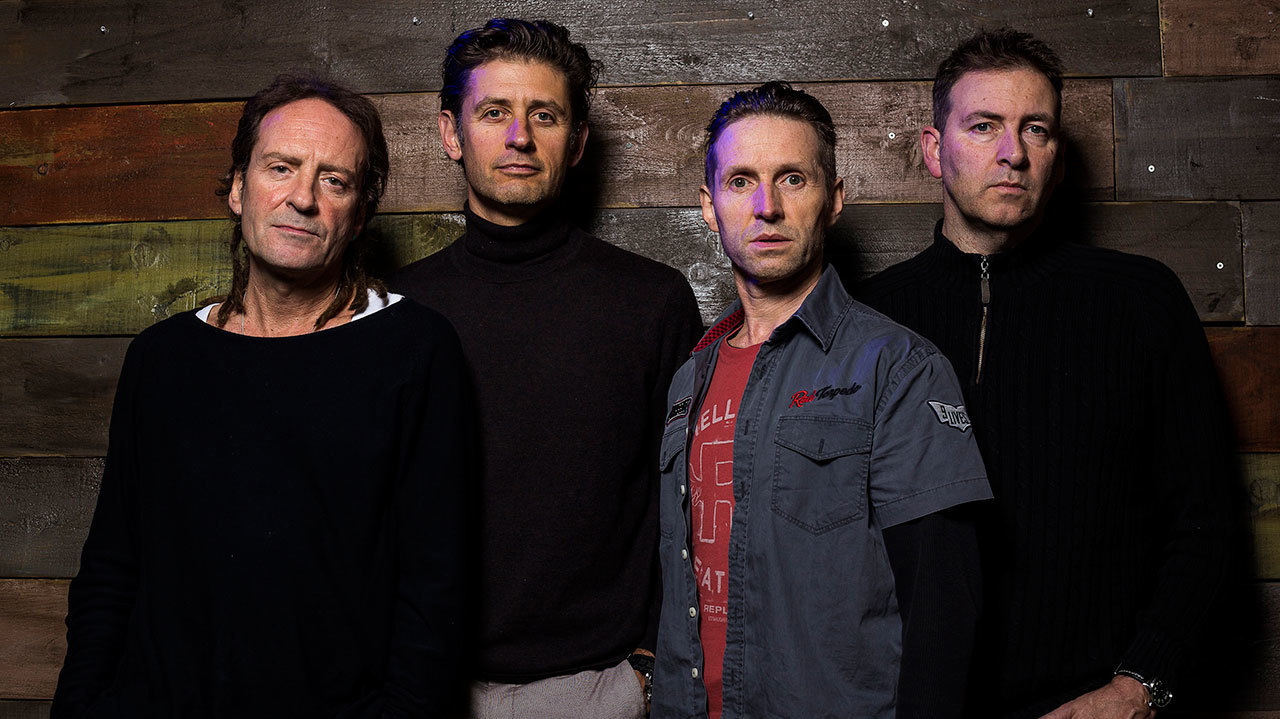Jesus Jones: "AC/DC is a major part of what we do"
The AC/DC-loving indie/ electronic fusioneers return

Best remembered for their 1990 hit Right Here, Right Now, Jesus Jones formed in Wiltshire in 1988. The band’s fusion of electronic music, house, techno and indie rock was somewhat ahead of its time, and guitarist Mike Edwards believes the band have something to offer readers of Classic Rock.
Do you feel comfortable about being in a magazine called Classic Rock?
Not really [laughs]. I was thinking about that ten minutes before you called. To me it’s quite weird, but I suppose that’s probably where we belong.
Stylistically speaking, will a few eyebrows be raised by people seeing you in it?
Probably. But the technological aspect of dance music is now ingrained into the style of what’s known as classic rock, which to me vindicates what we’ve been doing. For a quarter-century I said: “This is it how it will be.” I guess that’s why you’re talking to me now.
Mark Arm of Mudhoney reckons Jesus Jones helped pave the way for the grunge revolution, and during the early 1990s Jesus Jones were hugely popular on both sides of the Atlantic. Why didn’t you push on to become truly massive?
From grunge onwards, and certainly into what became known as Britpop, there was a reaction against that whole leap into the future. I wasn’t prepared to sacrifice what I believed in. By then we’d already had enough success, and taking things to the next level required compromise. I wanted to make records that I was proud of, as opposed to those that merely sold well. That probably sealed our fate.
Sign up below to get the latest from Classic Rock, plus exclusive special offers, direct to your inbox!
Passages is only the sixth album by the band, and is your first new music in sixteen years. You’ve said it’s different and yet similar to what Jesus Jones have done before, but that, emphatically, “it rocks”.
What’s really misunderstood about Jesus Jones is that if you strip back the surface sheen, you’ll hear the writings of someone who’s listened to AC/DC since 1978. That might look strange in print, but AC/DC is a major part of the make-up of Jesus Jones. The guitar magazines used to write about how interesting it was to hear a modern rock band using open chords. And the answer to that was because it’s how Malcolm Young used to do it. I’ve played a Gretsch Malcolm Young signature guitar since 1996.
The tour ends in London on June 29.

Dave Ling was a co-founder of Classic Rock magazine. His words have appeared in a variety of music publications, including RAW, Kerrang!, Metal Hammer, Prog, Rock Candy, Fireworks and Sounds. Dave’s life was shaped in 1974 through the purchase of a copy of Sweet’s album ‘Sweet Fanny Adams’, along with early gig experiences from Status Quo, Rush, Iron Maiden, AC/DC, Yes and Queen. As a lifelong season ticket holder of Crystal Palace FC, he is completely incapable of uttering the word ‘Br***ton’.
